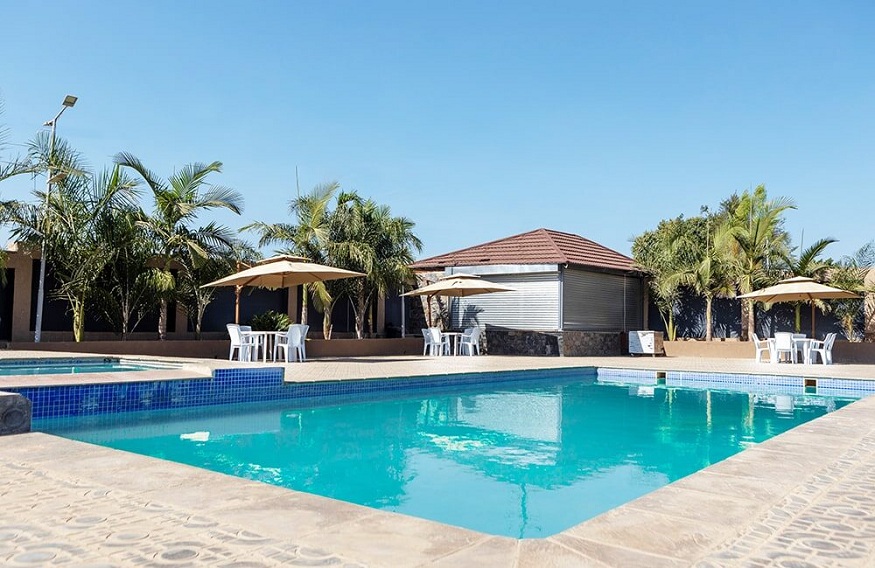The hospitality sector is a dynamic one, always changing to satisfy ever-evolving needs of discriminating tourists. As it’s a new era, companies looking to enthral customers as well as build enduring relationships must stay ahead of the curve. You will examine the top five trends influencing the hospitality industry in this post, providing insight into the tactics in addition to technological advancements that will revolutionize the provision of outstanding customer service.
1. Seamless and Personalized Experiences
In today’s fast-paced world, where every second counts, travellers want not just exceptional experiences but also easy ones tailored to their own wishes. Combining data analytics with the latest hotel management system, modern hostelry operators can now provide the highest levels of individual service by anticipating customer needs and offering something more than just convenience.
Pre-arrival personalized communication and recommendations based on guests’ travel preferences and history are made possible by these state-of-the-art systems that optimize operations behind the scenes. Contactless check-in as well as check-out procedures are made easier by integrated mobile apps along with self-service kiosks. This reduces the need for long lines and lets visitors easily move from one experience to the next.
When guests arrive at their accommodations, detailed guest profiles in the hotel management system guarantee they are welcomed with a carefully selected assortment of in-room amenities, carefully chosen to suit their tastes and preferences. Every element is thoughtfully planned by the system to foster a sense of anticipation in addition to belonging for every distinct visitor, from preferred snack and beverage options to customized welcome notes as well as reading materials.
2. Wellness and Mindfulness
The quest for holistic well-being has become a driving force in our fast-paced world, going beyond simple vacation experiences to encompass the core of hospitality. Astute visitors look for havens that support not just their physical bodies but also their minds as well as souls, creating a harmonious equilibrium between relaxation and introspection.
Aware of this significant change, lodging facilities are reinventing their services to provide guests with immersive wellness experiences that satisfy their needs for nourishment, exercise, and mindfulness. Modern fitness centres, once thought of as extravagance, are now necessary because they offer visitors state-of-the-art gear, individualized training programs, along with a variety of group exercise classes that stimulate the body and mind.
Relaxing spa retreats have grown to be popular as serene oases dedicated to getting away from the stresses of everyday life. Carefully curated menus of treatment and therapies are balanced between traditional healing methods and modern wellness techniques at these sanctuaries. Thoughtfully designed with natural features and a sense of peace, these places invite guests to experience profound relaxation as well as self-discovery.
3. Sustainable and Eco-Friendly Practices
Consumer expectations are changing, and as a consciousness industry is profoundly affected by World environmental problems like degradation of the biosphere and climate change. Hospitality’s definition is now remodelled as customers demand establishments that prioritize environmental concern, lower their CO2 emissions and encourage environmentally friendly travel.
Undertaking this effort is the world of hotels and resorts: sustainability in the round, also waste management, water conservation policy, energy efficiency measures and green procurement funds. It is capturing the hearts and minds of ecologically minded travellers, while at the same time leading us one step closer to a greener future through these technologies and through cultivation of an environmentally conscious society.
Sustainable hospitality now relies heavily on energy-efficient projects; establishments purchase renewable energy sources like wind turbines and solar panels as well as install smart building management systems to maximize energy use. Motion sensors, sophisticated insulation methods, and LED lighting all help to lower energy consumption alongside cut down on greenhouse gas emissions.
4. Authentic and Immersive Experiences
In a world where mass tourism frequently obscures the diverse range of regional customs and cultures, more astute tourists are looking for immersive, real experiences that help them deeply connect with the spirit of the places they’ve chosen. In response to this significant shift in expectations, hospitality providers are rethinking what they have to offer in addition to creating special experiences that take visitors beyond casual interactions and encourage them to fully experience the spirit and soul of the locations they visit.
Culinary classes and artisanal tours, which provide an enticing window into a region’s rich culinary legacy as well as artisanal customs, are at the forefront of this movement. Visitors are encouraged to get hands-on experience cooking classic dishes under the guidance of regional chefs, learning about the cultural significance and narratives entwined with each ingredient and method.
Initiatives with a community focus have also come to light as effective inducers of real alongside immersive experiences. With the help of local communities, people living in hotels as well as visitors will find themselves engaged in a diversity of interactions. Relatives guests will often see formal ceremonies, experience local customs and can stay with ordinary people. These experiences are an invaluable glimpse into the daily life styles, traditions and worldviews that exist within the community.
5. Seamless Integration of Technology
Technology has become a disruptive force in the constantly changing hospitality industry, changing how experiences are created alongside services provided. Hospitality providers are raising the bar for guest experiences as well as improving operational efficiencies by slickly incorporating cutting-edge innovations like property management software. This creates a personalized and seamless journey for guests from the time of arrival to the time of departure.
Virtual concierge services, driven by machine learning algorithms and artificial intelligence (AI), are at the vanguard of this technological revolution. These perceptive aides are on hand 24/7, prepared to answer questions from visitors, and make customized suggestions, as well as ensure smooth service arrangements. From booking restaurants to scheduling transportation and local activities, visitors can communicate their preferences with ease and have their needs accurately anticipated.
The guest experience has been further simplified by mobile check-in and check-out procedures, which do away with the need for long lines as well as allow for a smooth entry alongside exit from the property. Guests can check in securely, get digital room keys, and even customize their room preferences with just a few taps on their mobile devices, making their arrival hassle-free and personalized.
Conclusion
For companies looking to enthral customers and build enduring relationships, keeping up with these trends is essential as the hospitality sector develops. Through the incorporation of technology, wellness, sustainability, and personalization, in addition to authenticity, hospitality providers can craft remarkable experiences that align with the expectations as well as values of contemporary travellers.

















+ There are no comments
Add yours